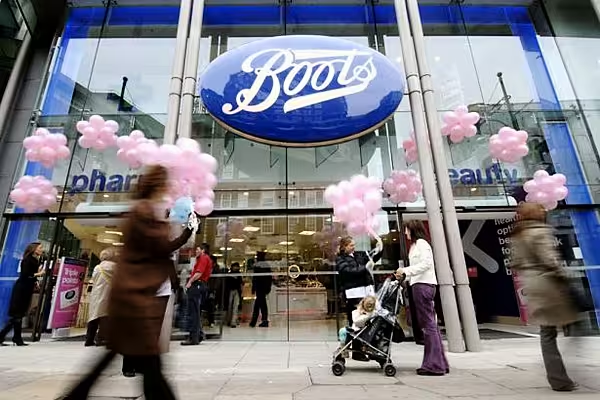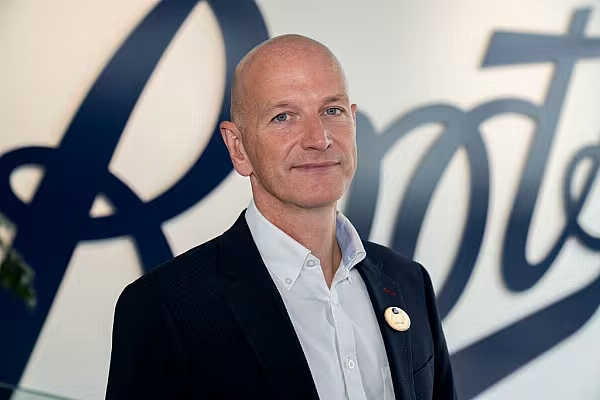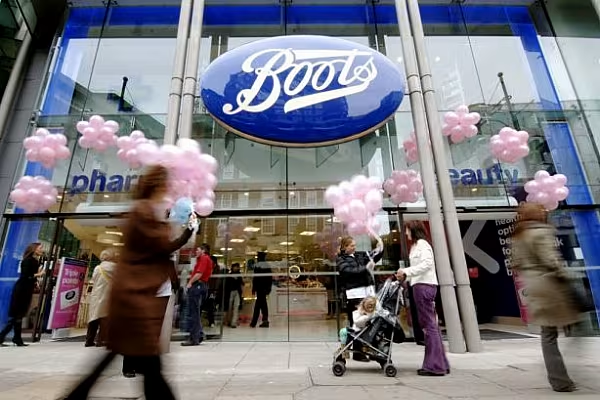Stefano Pessina, named permanent chief executive officer of Walgreens Boots Alliance Inc. on Thursday, wasted no time in signaling that he wants the largest U.S. drugstore chain to grow through acquisitions.
“I believe that the American market will go through a substantial wave of consolidation, horizontally and vertically,” Pessina said on a conference call to discuss the company’s latest quarterly earnings. While he wouldn’t identify potential targets, he said Walgreens wants “to be part of this at the right time with the right partner.”
The Deerfield, Illinois-based company could choose from U.S. and international options, including the acquisition of a pharmacy benefits manager, a drug distributor or pharmacies that operate within grocery chains, analysts said.
If Walgreens were to target a pharmacy benefits manager, Express Scripts Holding Co. or UnitedHealth Group’s OptumRx would be the “obvious choices,” according to Jon Wolfenbarger at Allianz Global Investors US. “The biggest idea seems like a PBM like Express Scripts, but it’s unlikely happening any time soon,” he said.
John Ransom, an analyst at Raymond James Financial Inc., upgraded his rating on the company’s stock to outperform from market perform, citing the earnings forecast and the company’s deal prospects. “We believe that there is ‘optionality’ with M&A and the strategic vision of (the now officially coronated) CEO,” he said in a note to clients.
Ransom put a price target of $105 on the shares, which rose 4.1 percent to $93.19 at 11:07 a.m. in New York Friday.
Pharmacy Targets
Walgreens also might consider buying pharmacies at regional grocery chains, Wolfenbarger said. These include Albertsons Cos., which operates Albertsons, Safeway, Vons, Jewel-Osco and other stores in 33 states and is preparing for an initial public offering. Other possible targets are Publix Super Markets Inc. and HEB Grocery Co., he said.
While Pessina told investors on a previous call that he was interested in acquisitions to deliver medicine more efficiently to patients, his comments Thursday on “horizontal” mergers implied he’d also be interested in other drugstore chains.
Drug Distribution
Walgreens already has a foothold in the drug-distribution business after it signed a 10-year agreement with Amerisource Bergen Corp. in 2013 and became the company’s third-largest shareholder. When Pessina was asked on Thursday’s conference call if Walgreens wanted to increase its stake in Amerisource, he said “we did the deal of course to improve our profit but also for a strategical reason.”
The U.S. drugstore market is already in the midst of major consolidation. Last month, CVS Health Corp. agreed to pay $1.9 billion for Target Corp.’s in-store pharmacies and clinics with more than 1,660 locations. In February, Rite Aid Corp. struck a deal to buy Envision Pharmaceutical Services Inc. for about $2 billion, giving it a pharmacy benefits manager, a business where Walgreens is absent.
Today’s Walgreens is itself the product of an acquisition. Pessina built Bern, Switzerland-based Alliance Boots GmbH through more than three decades of mergers before selling it to Walgreen Co. last year. He’s now the company’s largest shareholder with a 13 percent stake.
On the same day Walgreens reported third-quarter earnings that topped analysts’ estimates, the company also announced its own vertical acquisition, the $215 million purchase of Avon Products Inc.’s Liz Earle line of U.K. skin-care products. The botanic brand will be marketed alongside other Walgreens beauty products, including the in-house Boots No7 brand. It’s unlikely to be Pessina’s last deal.
“What we know about them is that they are very shrewd business operators and negotiators, and their acquisitions have shown to be accretive in the past,” said Tony Scherrer, director of research at Seattle-based Smead Capital Management, which oversees $1.5 billion including Walgreens stock.
Bloomberg News, edited by ESM














